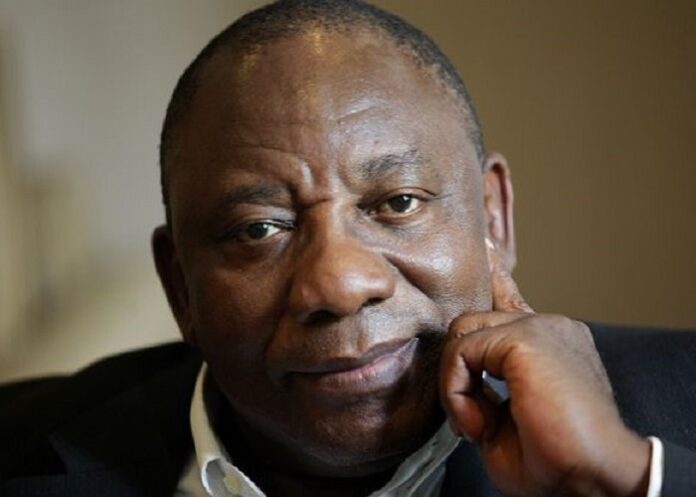President Cyril Ramaphosa’s legal team has attacked the Board of Healthcare Funders’ (BHF) challenge to the National Health Insurance (NHI) Act on technical grounds, arguing that the medical scheme industry association took its fight to the wrong court.
Business Day reports that the NHI Act is up against three legal challenges, brought separately by Solidarity, the BHF and the SA Private Practitioners Forum (SAPPF).
The BHF, representing 40 medical schemes covering 4.5m beneficiaries, or half the market, launched its challenge in May, asking the High Court to review and set aside the President’s decision to sign the Act into law, and to declare it has no legal force.
The BHF argued that in line with section 79 (1) of the Constitution, Ramaphosa should have referred the Bill back to the National Assembly for reconsideration because many submissions raised concern about its constitutionality.
According to section 79 (1), the President must either assent to and sign a Bill passed by Parliament, or if he has reservations about its constitutionality, he has to refer it back to the National Assembly.
The BHF’s application also asked for his full record of decision-making on the Bill.
“We believe this will show President Ramaphosa received several submissions advising him that the Bill was unconstitutional,” the BHF said on Sunday, adding that the act was “a necessary last resort” after its input had been ignored by Parliament and the President.
Now, in a case within a case, the President has argued that the BHF should have taken the matter to the Constitutional Court instead of the High Court.
Ramaphosa’s spokesperson, Vincent Magwenya, declined to comment, saying that the Presidency would do so only after the conclusion of the court process.
In papers, the President’s legal team argued that the BHF’s application fell within the exclusive jurisdiction of the Constitutional Court, as prescribed by section 167 (4)(e) of the constitution.
This section says that only the Constitutional Court may decide that Parliament or the President has failed to fulfil a constitutional obligation.
It also argued that the President did not have an obligation to refer legislation back to Parliament if he had reservations about its constitutionality, as doing so was entirely at his discretion.
In response, the BHF said in its papers that irrespective of whether the President’s powers to refer the Bill to Parliament were obligatory or discretionary, the lawfulness of his decision was reviewable by the High Court.
The jurisdictional challenge is expected to be heard in the High Court on 10 March, according to the BHF, which said it had already approached the Constitutional Court on a contingency basis.
“If we lose in the High Court we will go to the Constitutional Court. If we win and the Presidency appeals, we will also approach the Constitutional Court,” it said.
Neither the BHF’s legal challenge nor those launched by Solidarity and the SAPPF stop the President assenting to specific sections of the legislation.
The court case aside, National Treasury and several other departments are working on a plan for a “reasonable roll-out”of NHI, with nearly R3bn allocated for the scheme over the medium term to prepare for the full implementation of the scheme.
An amount of R2.5bn has been allocated as a baseline for an indirect grant over the 2025 medium-term expenditure framework, reports News24, while the direct NHI grant is around R460m per year.
The money is aimed at strengthening the public healthcare system in preparation for the implementation of the scheme, said Treasury’s head of budget, Edgar Sishi, and will go towards “innovative testing of new reforms and improving the quality of services at primary healthcare facilities”.
It will also help “to ensure appropriate health infrastructure in line with national and provincial policy objectives,” he said.
“(The) indirect grant comprises two components: the health facility revitalisation component and the health systems component.
“Patient information systems … is allocated R112.5m to continue its work on implementing patient information systems. For general-practitioner contracting, the department is allocated R103m to develop and test strategic purchasing,” he added.
However, a substantial amount of work still needed to be commissioned to enable the effective implementation of NHI, Sishi said.
Furthermore, there had to be a consolidation and coordination of the funds currently sitting in provinces.
“There’s more to the NHI than just talking about adding money. It's actually about coordinating the existing … public sector health system, and revitalising the health facilities from an infrastructure perspective.”
He added there was the notion that health budgets were not growing.
The Medium-Term Budget Policy Statement projected health budgets would grow from R274bn in 2024/25 to R284.5bn in 2025/26, to R310.8bn in 2027/28, an average growth of 4.3% per year.
“Various efficiencies will continue to be important … including tighter management of commuted overtime and revisions of some of the policy frameworks such as for the internship programme and the rural allowance. Spending reviews have also been undertaken.”
Meanwhile, Thokozile Madonko, a researcher at the Public Economy Project at Wits University, said Treasury had chosen to cut expenditure as opposed to increasing revenue.
“What kind of lessons has Treasury learned from the structural justice programmes of the 1980s and the recent fiscal consolidation programmes that were implemented in Europe post the 2008 financial crisis?
“And the impact that had on unemployment inequality and poverty?”
Business Day PressReader article – NHI: choice of court under attack (Open access)
News24 – 'Reasonable rollout': Treasury, departments form working group to steamroll NHI with R2.5bn baseline
See more from MedicalBrief archives:
Government plays for time on NHI court cases
Medical schemes and union kickstart NHI legal challenges
NHI Bill signing sets stage for protracted battle in courts
Ministers deliberately ‘demonise’ medical schemes, claims BHF research

